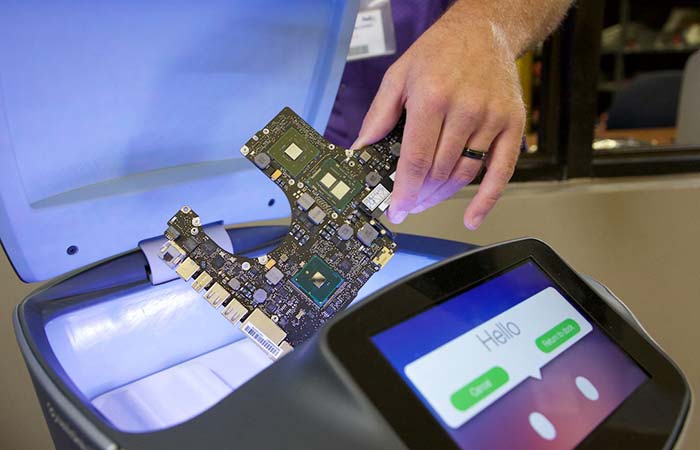Continuing medical education is increasingly vital to career success and providing top-quality patient care, and continuous learning benefits both professionals and their patients alike. By keeping abreast of emerging technology and treatments while expanding professional growth potential for healthcare providers alike, medical workers can ensure they provide patients with superior service and the care they require.
This article discusses ways to continue education in medicine, highlighting why it’s crucial to stay current and the advantages of continuous professional growth.

Specialized Programs: Key for Aspiring Medical Professionals
Specialized medical programs are an invaluable source of ongoing learning in healthcare. Offering in-depth instruction in specific fields like cardiology, oncology, radiology, or pediatrics, for example, enables medical professionals to keep abreast of current advancements and best practices related to their field.
Such programs also offer participants valuable hands-on experience through clinical rotations and practical workshops, so they can apply what they learn directly to real-life settings. Specializing helps practitioners provide better patient outcomes and higher standards of care; engaging in such programs encourages a culture of lifelong learning that facilitates adaptation to an ever-evolving medical landscape.
For instance, if you’re interested in continuing your medical education as a radiology therapy specialist, in particular areas in the United States, like Brooklyn, you might want to consider enrolling in a Brooklyn radiation program that’s flexible, JRCERT-accredited and all-encompassing. Such a program equips students to take the ARRT registry examination upon completing all coursework, empowering them with strong training that covers both theory understanding as well as real-life skills to ensure they are ready for success within this demanding medical sphere.
Pursuing Advanced Certifications and Fellowships
Another important way to continue education in medicine is by pursuing advanced certifications and fellowships. These programs provide specialized training and credentials that can greatly improve a medical professional’s expertise and job opportunities. Advanced certifications show dedication to achieving excellence along with superior skills in a particular practice area. They often require rigorous coursework, examinations, and practical experience.
Fellowships are also excellent chances to study more deeply and directly learn about a specific specialty. They are usually offered by hospitals, universities, or professional groups. These allow medical professionals to work closely with experts in their areas of focus. The experience can result in acquiring new abilities, understanding, and professional relationships that are very important for moving ahead in one’s career.
Taking part in these higher-level educational opportunities guarantees that those delivering healthcare remain up to date in their specializations and can provide excellent patient service. Additionally, it extends opportunities for growth like leadership roles, research work, and other professional paths.
Participating in Conferences and Workshops
Conferences and workshops provide essential opportunities for ongoing medical learning, providing doctors, scientists, medical students, nurses, and other healthcare providers an opportunity to learn about the latest research findings, technologies, and methodologies from top specialists. Furthermore, conferences and workshops help participants form connections among each other which may lead to working on joint projects or sharing experiences between attendees.
To stay updated with new trends and advancements, going to conferences is vital. For instance, you might learn about the technological advancements in medicine, such as the use of blockchain to streamline patient databases and more. Also, debates and group discussions frequently touch upon the latest subjects that might not yet be part of usual studies. Workshops normally provide practical training in certain abilities or methods, letting those who participate practice and improve their skills under the supervision of skilled trainers.
Meeting new people and creating a network of professionals can open doors to new opportunities and collaborations. The community members from SDARTS know how important it is to have support for career growth, skill development, and staying informed about industry innovations. Engaging with like-minded individuals at conferences fosters knowledge-sharing and can lead to valuable partnerships. By actively participating in discussions and hands-on workshops, attendees gain insights that keep them ahead in their respective fields.
Engaging in Peer Review and Collaborative Learning
Peer reviews and joint learning are important parts of continuing education in medicine. Interacting with colleagues in activities like journal clubs, case discussions, and peer reviews encourages critical thinking and sharing of understanding. Such actions assist medical experts to remain informed about recent studies and clinical methods while promoting a sense of teamwork and backing each other up.
For medical professionals, journal clubs are a way to evaluate recent articles from scientific journals, while case discussions allow them to review and learn from real-life scenarios. By taking part in these shared learning activities, medical professionals can keep working to improve their skills and proficiencies and stay updated about any changes happening in their field.

Final Thoughts: Understanding Life-Long Learning Strategies for Career Growth in the Demanding Field of Medicine
Continuous education is paramount for medical careers to grow and improve patient care. Enrolling in special programs, pursuing certifications and fellowships, and being part of conventions and workshops, along with peer reviews and collaborative learning can assist medical professionals to be up-to-date and progress in their careers.
By constantly learning throughout life, healthcare providers confirm they are prepared to face the changing requirements of their patients and the medical sector. This dedication to continuous improvement fosters a culture of excellence and innovation in healthcare.

Founder Dinis Guarda
IntelligentHQ Your New Business Network.
IntelligentHQ is a Business network and an expert source for finance, capital markets and intelligence for thousands of global business professionals, startups, and companies.
We exist at the point of intersection between technology, social media, finance and innovation.
IntelligentHQ leverages innovation and scale of social digital technology, analytics, news, and distribution to create an unparalleled, full digital medium and social business networks spectrum.
IntelligentHQ is working hard, to become a trusted, and indispensable source of business news and analytics, within financial services and its associated supply chains and ecosystems


























